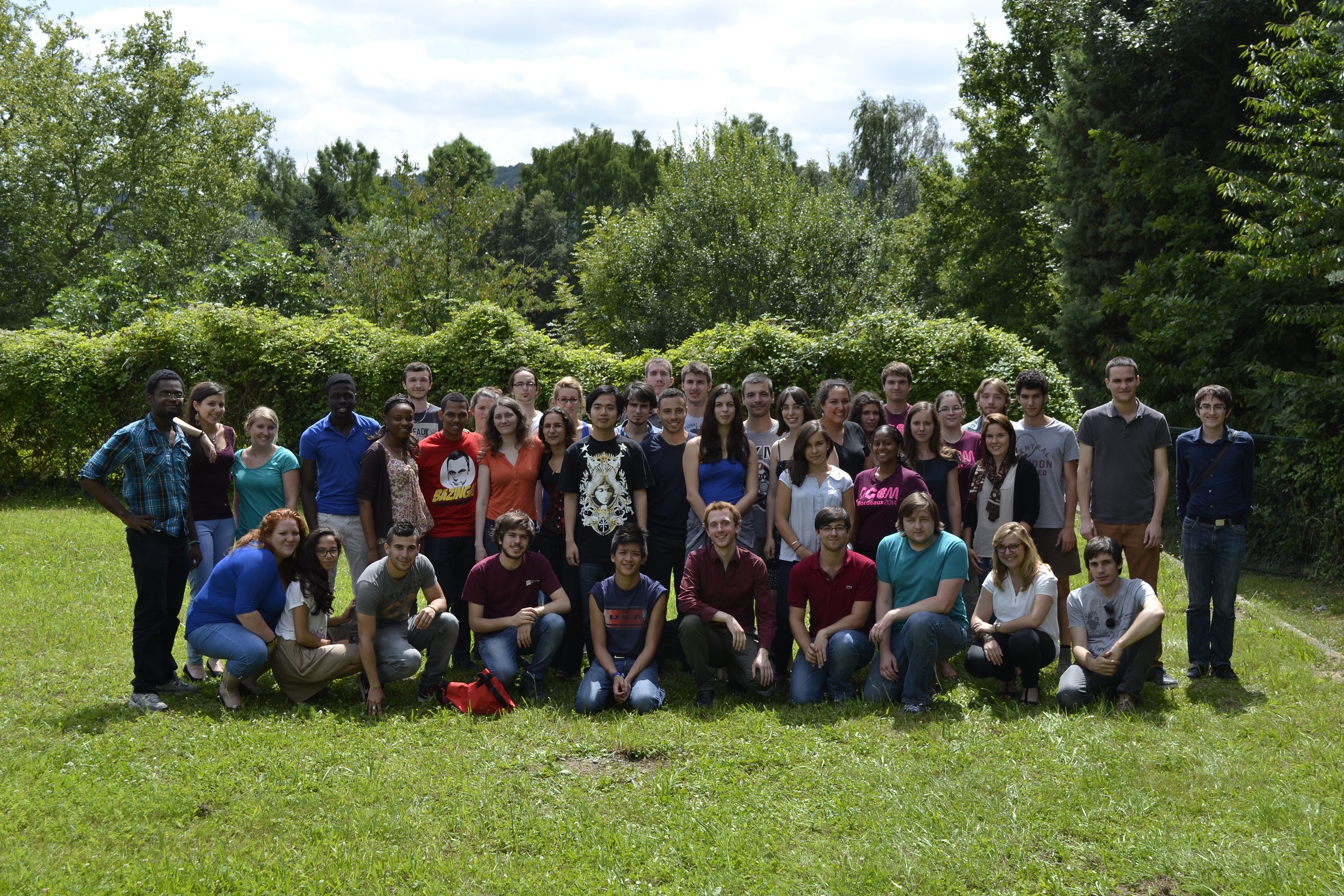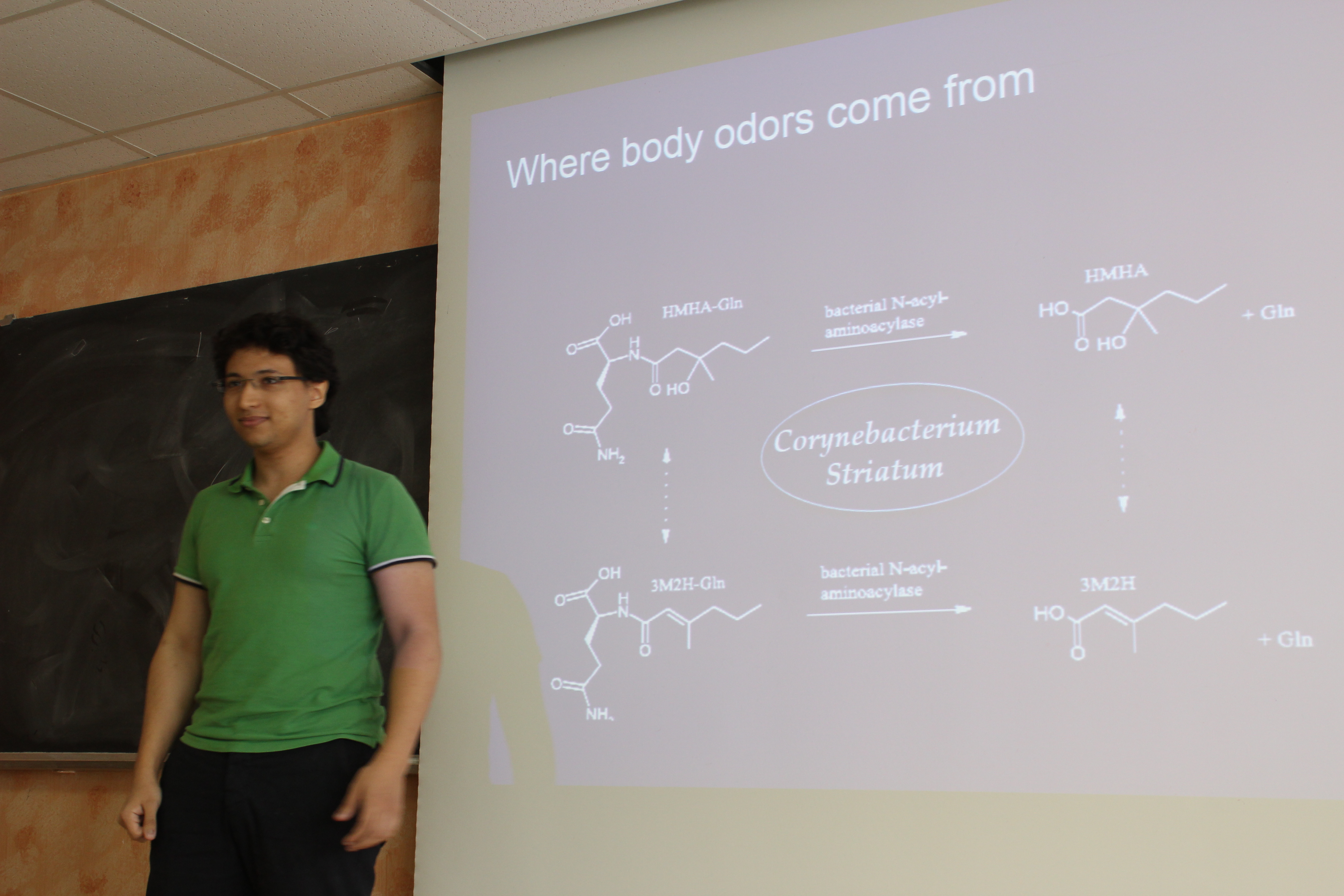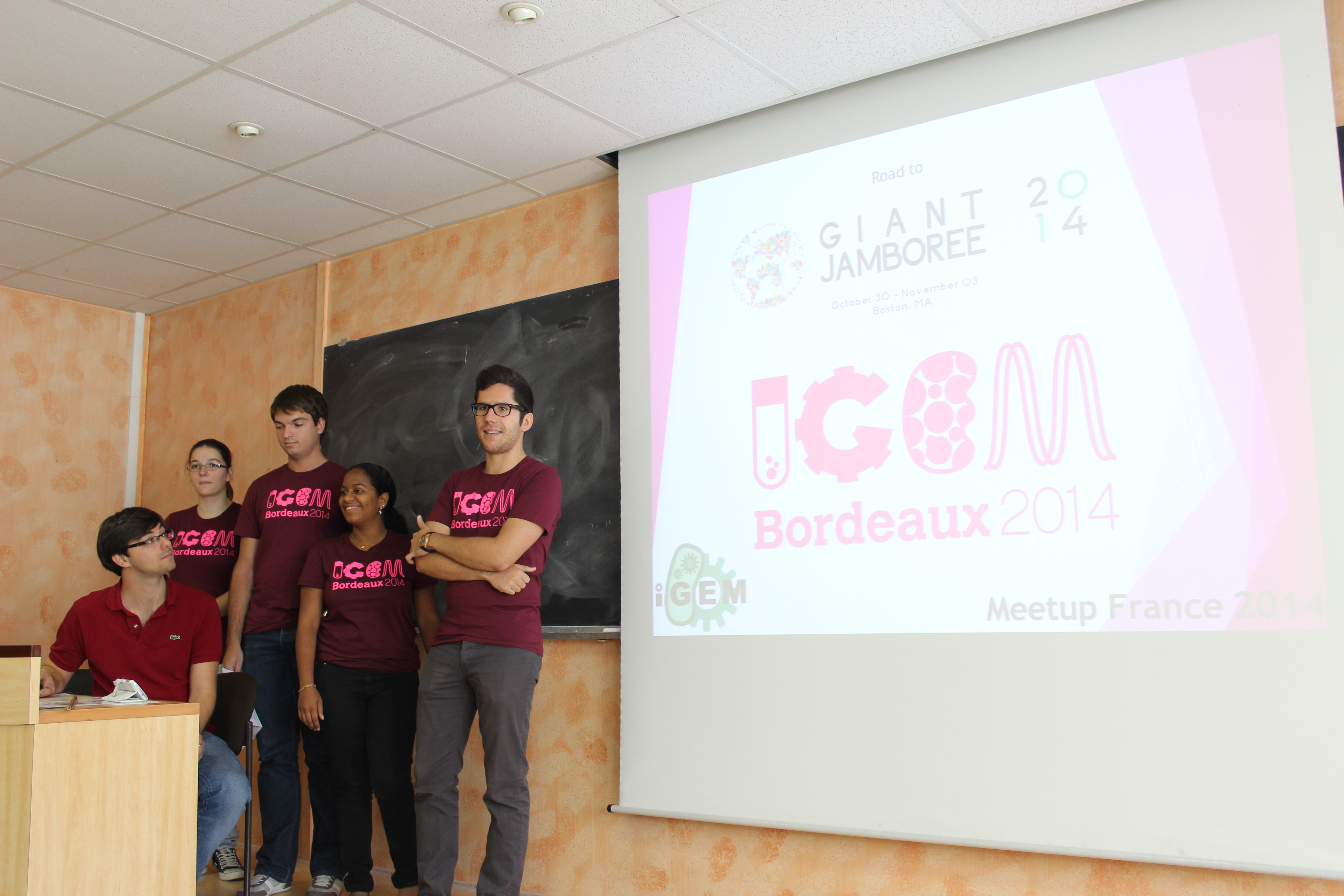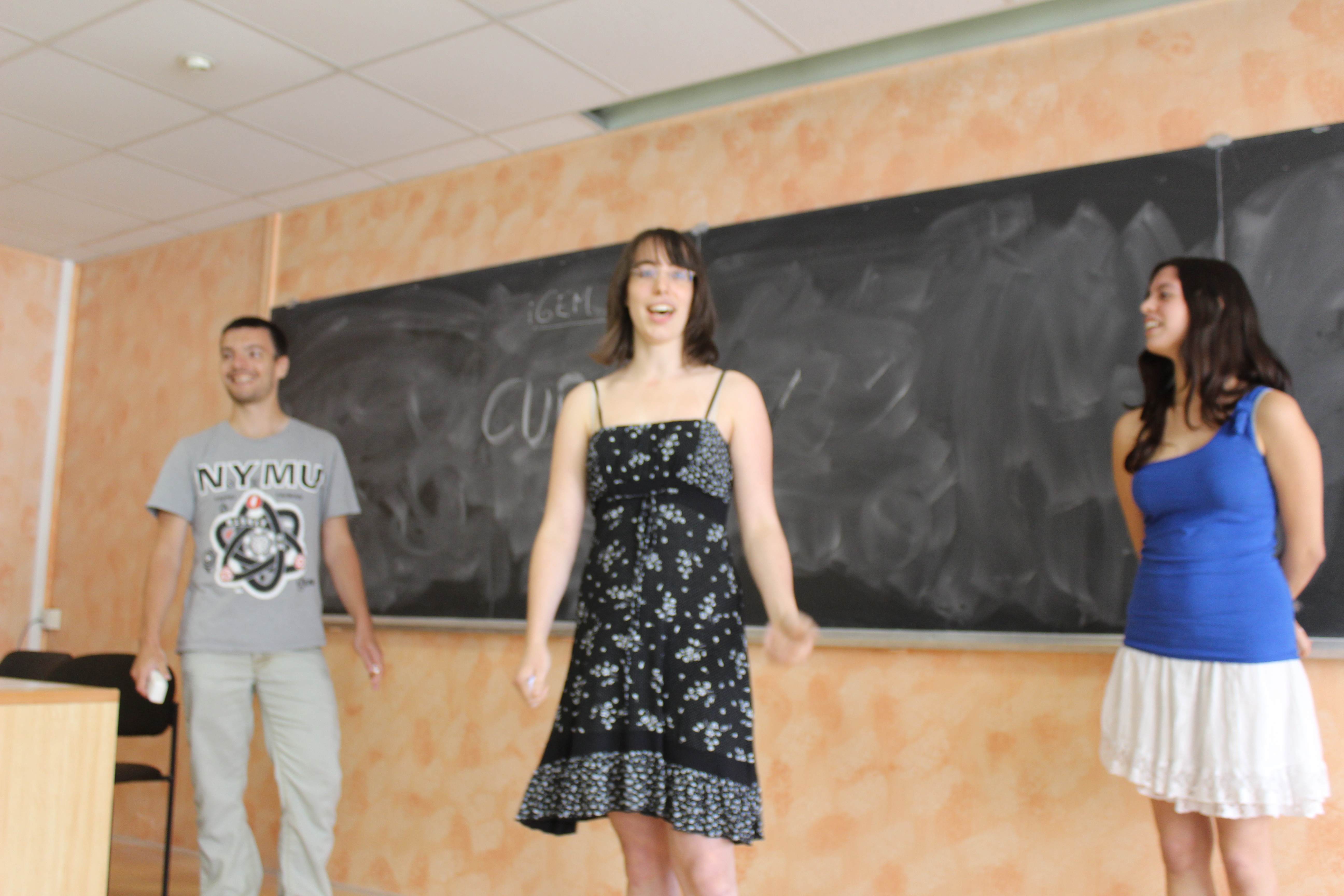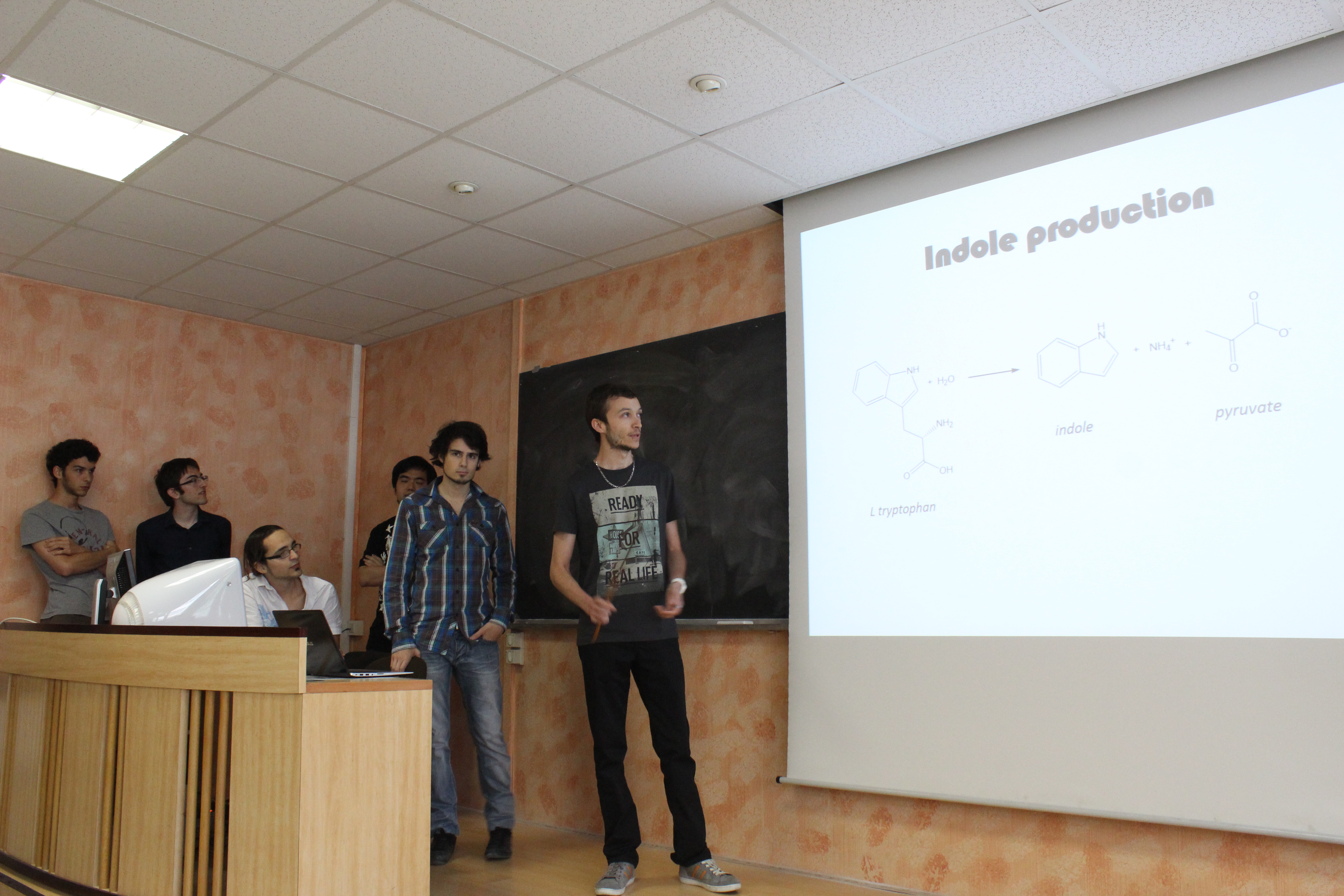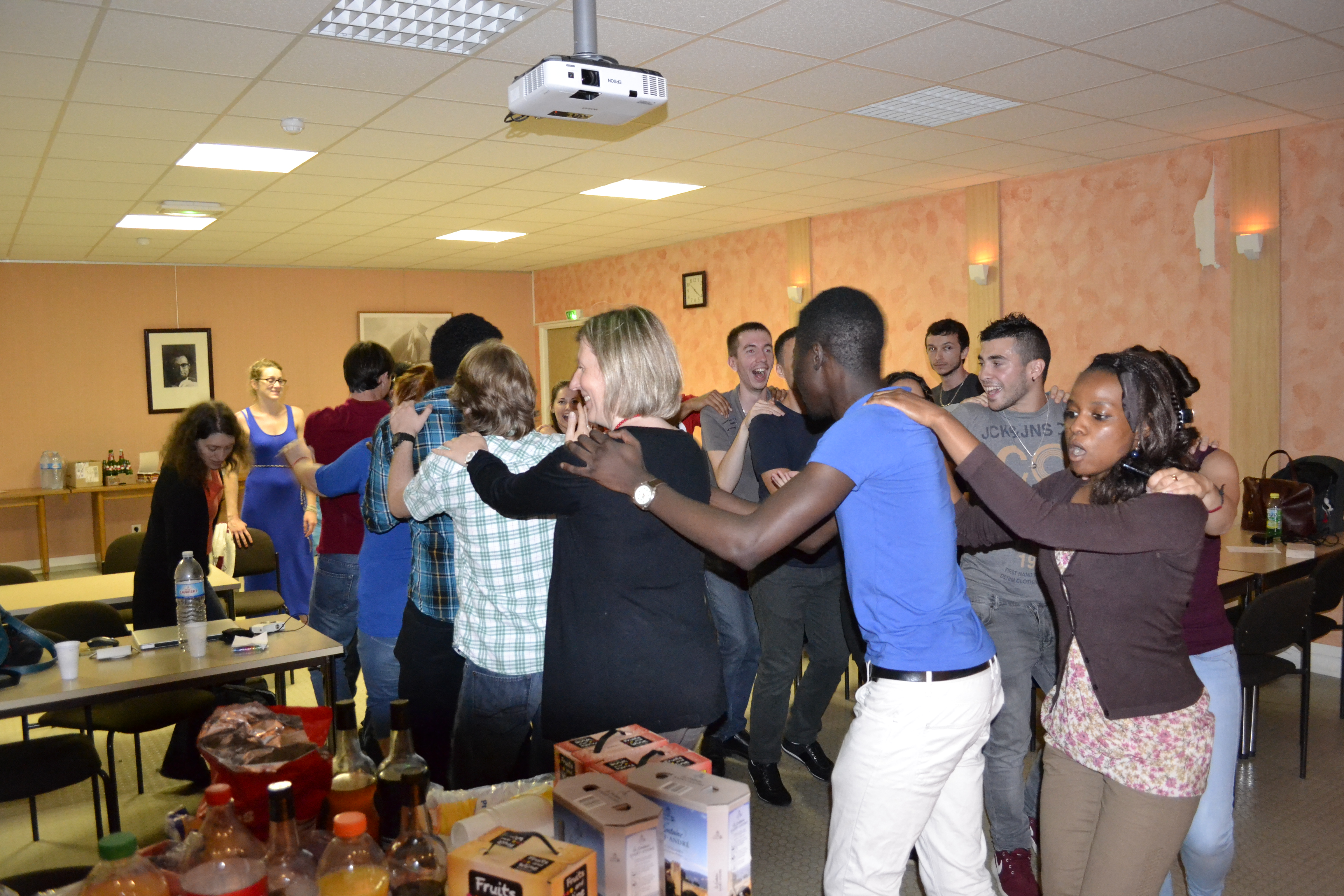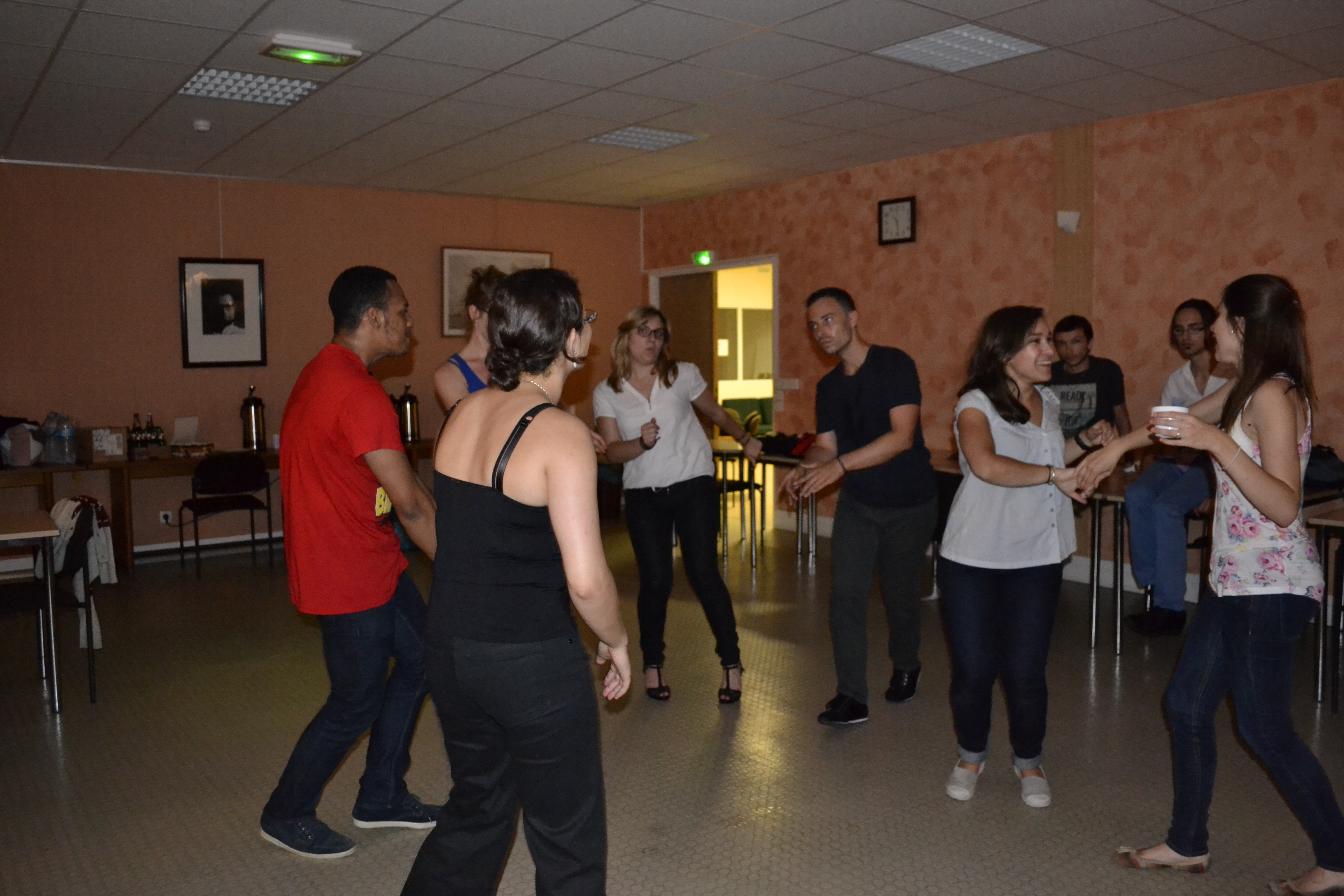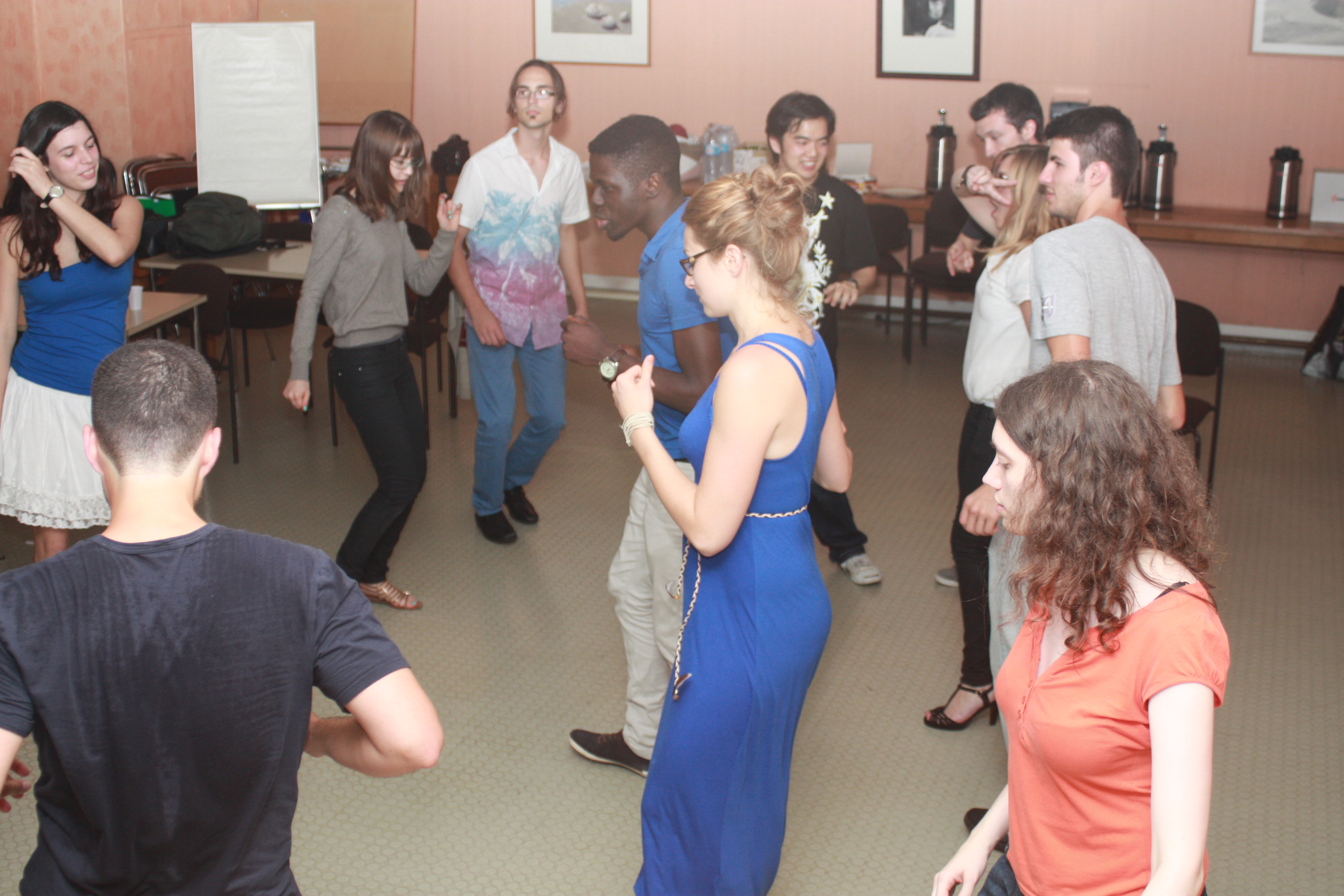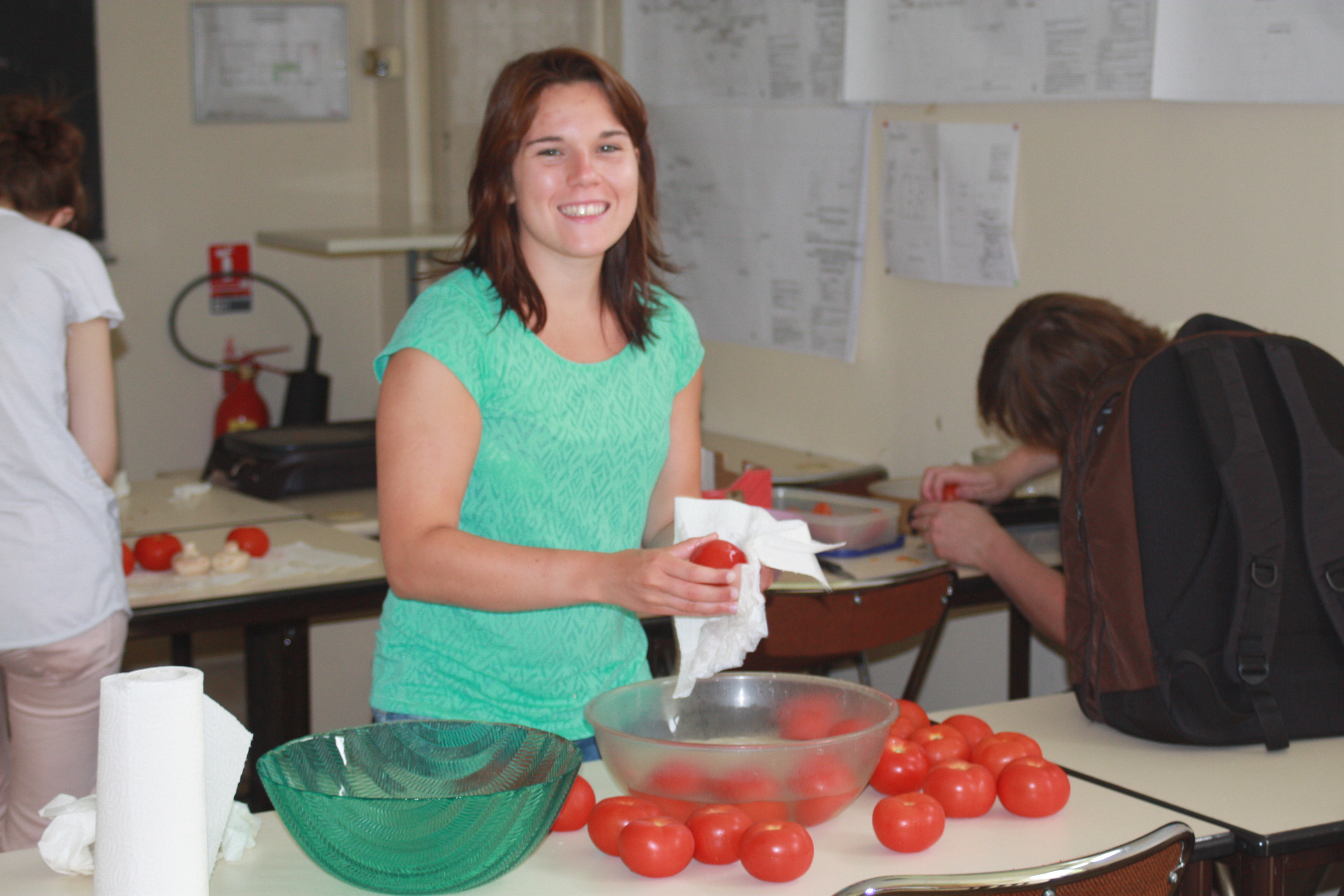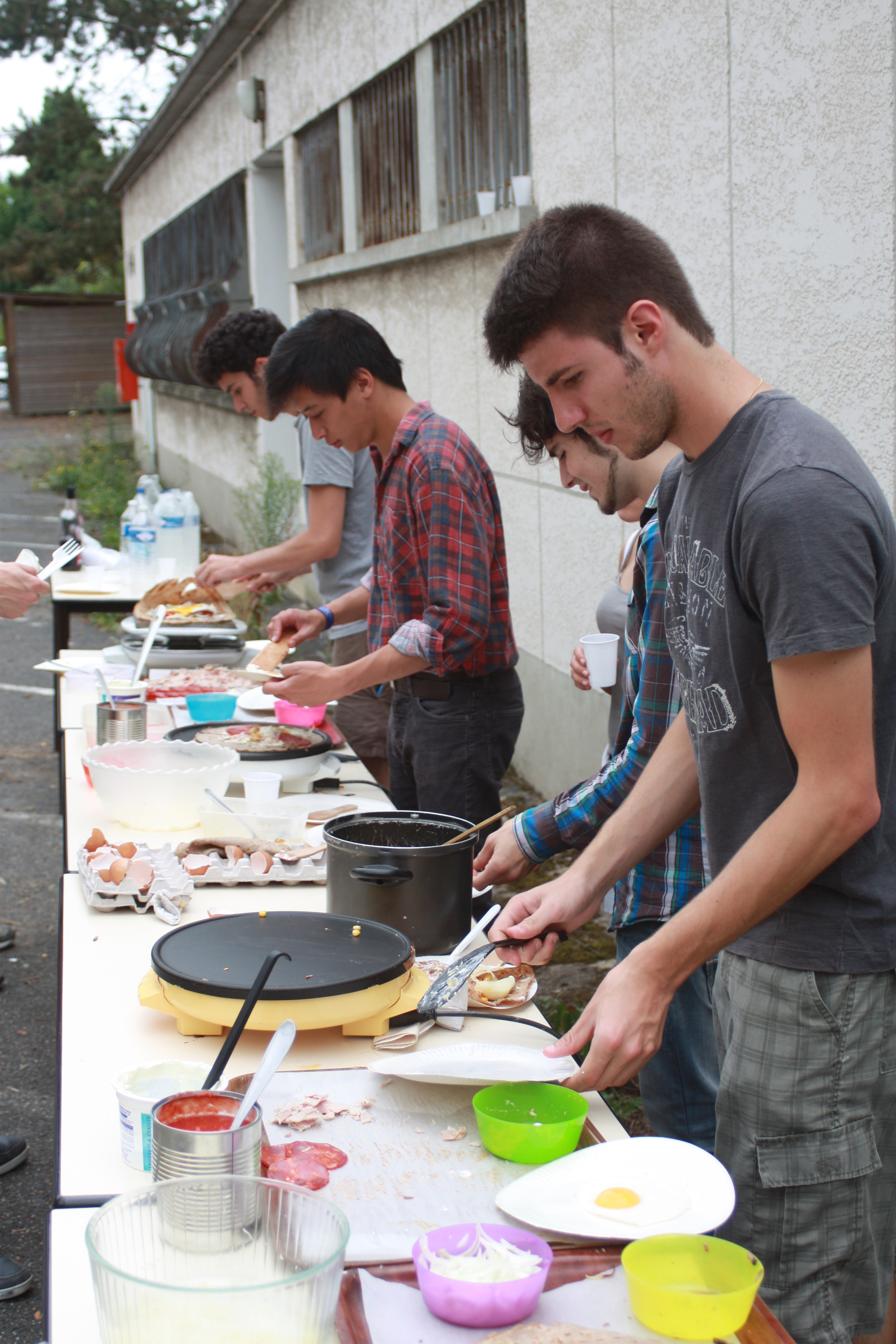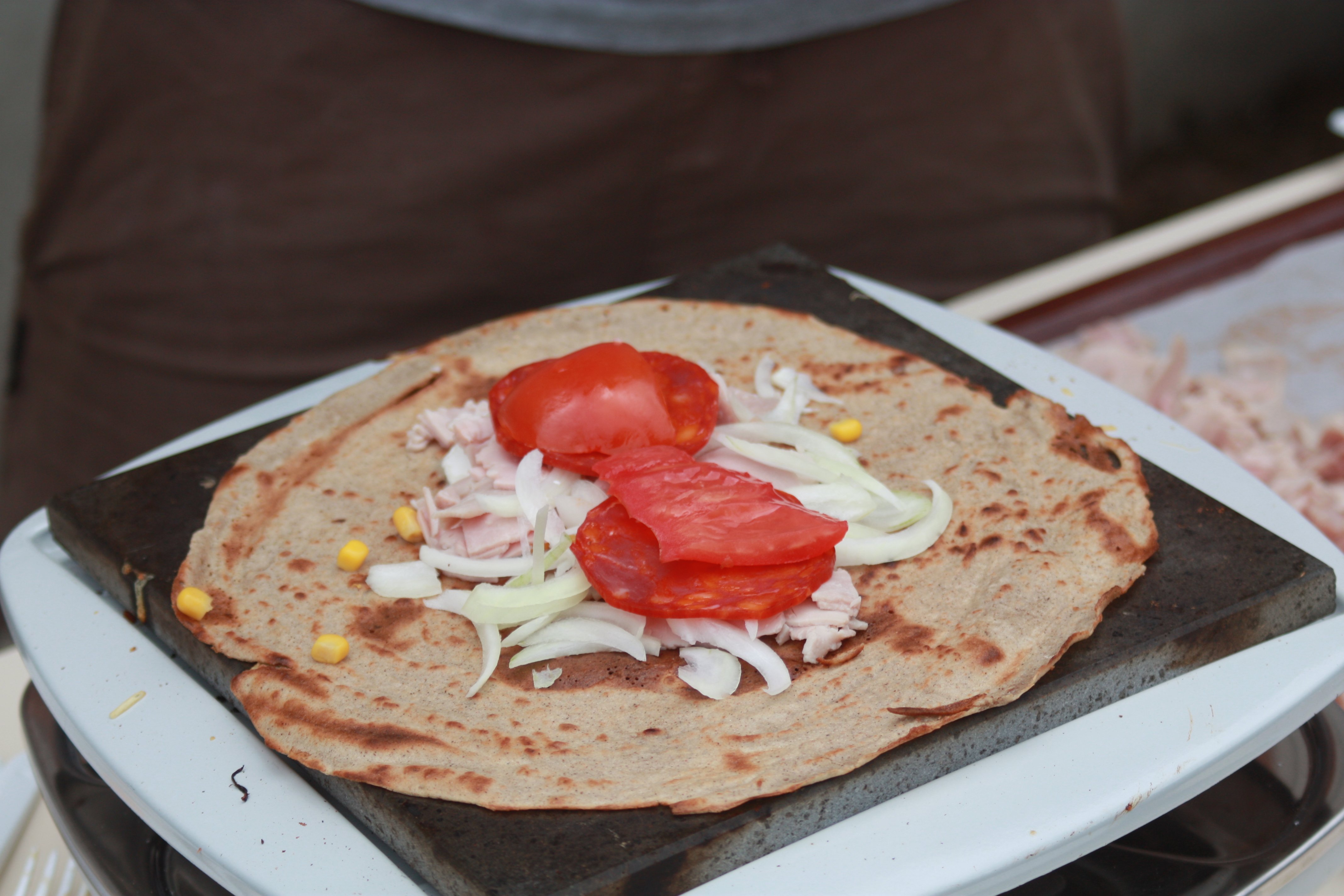Team:Paris Saclay/Project/Workshop
From 2014.igem.org

Contents |
French Meetup
Organization
This year’s competition will have a Giant Jamboree and no regional-level meetings. In order to discover other French teams’ projects and exchange ideas before the Jamboree, we decided to organize a French meetup with the other Parisian teams, that is, Bettencourt and Evry. The meetup was from 8/2/2014 to 8/3/2014. The following teams participated: Bettencourt, Bordeaux, Evry, Lyon, Saclay.
Planning started in June. We invited all French teams via email. We held meetings with Bettencourt and Evry was decided that Saclay’s campus serve as the venue, because of its open spaces and easy access via public transportation. Saclay team members also offered accommodation in their homes. Meals were prepared by all three hosts.
Activities
Saturday 8/2/2014
1. Project presentations 10:00 am
Each team presented their project for 10 minutes in English. Evry filmed each presentation as well as the questions that followed. It was good training for the Giant Jamboree and a great way to familiarize ourselves with all the different projects.
Teams and their projects:
Caption:
- Evry: sponges that could purify water
- Bettencourt: probiotic deodorant, analysis of good and bad smells
- Bordeaux: synthetic silk, “elasicoli”
- Lyon: curli to remove nickel from water
- Saclay: bioart project on the representation of life via a “lemon”
2. Rejected projects 11:30 am
Evry proposed sharing ideas that were scrapped such as Bettencourt’s idea of “exploding bacteria” or Saclay’s. It was an informal yet interesting way to see how the teams finally chose their projects. The major deterring factors were feasibility and time.
3. Ethics discussions 3:00 pm
Saclay organized this event. This was essentially a workshop to engage iGEMers in discussion. We talked about bioethics and bioart in particular. Details on the round table can be found on our wiki at this address.
4. Social event 8:00 pm
After dinner we held a party. Who knew iGEMers were party animals as well?
Sunday 8/3/2014
The following activities were prepared by Bettencourt, and were conducted in parallel starting from 10 am.
1. Sweat collection
Bettencourt asked us to engage in intense physical activity. Each participant stuck a sweat collecting patch under one of their armpits. This sweat was to be analyzed by Bettencourt.
2. Smell tests
Bettencourt had prepared several samples of sweat from their own members. We were to smell three samples and give our impressions on each one.
3. MOOC video
Each team explained their project in a 3-minute video which was to be uploaded on MOOC for high school students to watch – and hopefully be inspired to participate in iGEM themselves.
We had lunch and said our goodbyes around 3 pm.
Closing remarks
The meetup was quite a success. We were able to communicate with other French teams directly; chatting online and emails still seem to have their limits. That being said, the event was tweeted and posted on our Facebook pages, as well as the main page of iGEM. It was a great opportunity to promote French iGEM teams.
The interactive aspect of the meetup was key. Everyone was able to express their thoughts, and discussion resulted in further reflection on our projects and on synthetic biology in general. It was sort of a mini jamboree between French teams. We exchanged contact information of course, which made subsequent collaboration between us much easier. For example, Lyon was able to provide us with a 3D-printed mold of a lemon.
Unfortunately not all teams we invited initially were able to come due to last-minute complications for the most part. After all, for some teams the distance to cover may have been a bit of a burden. Out of eight (i.e. all French teams) we ended up with five, which is still the majority. Nevertheless we hope that the success of this year’s meetup will encourage more teams to participate in the future. Organizing events has proved to be quite difficult, but we have learned much on the matter.
 "
"




